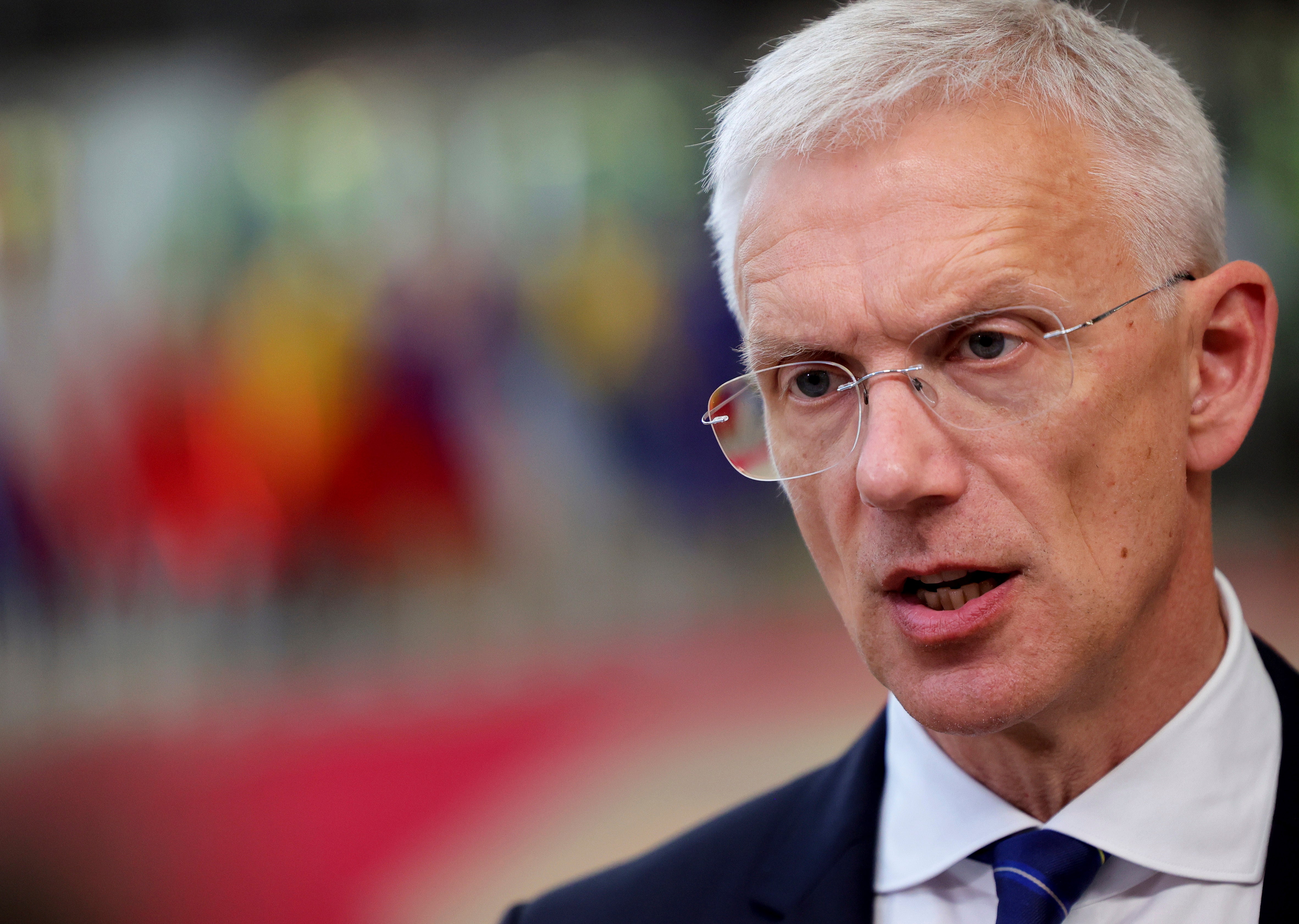Latvian election shadowed by division among ethnic Russians
Latvians will be voting on Saturday in a general election that has been substantially influenced by neighboring Russia’s attack on Ukraine, political disintegration among the Baltic country’s sizable ethnic-Russian minority as well as issues around the economy, including high energy costs

Latvians will be voting on Saturday in a general election that has been substantially influenced by neighboring Russia’s attack on Ukraine, political disintegration among the Baltic country’s sizable ethnic-Russian minority as well as issues relating to the economy, including high energy costs.
Polls show that Prime Minister Krisjanis Karins’ New Unity party, which heads the current four-party center-right minority coalition, is likely to emerge as the top vote-getter, with a projected 13% to 20% of ballots cast by the 1.5 million eligible voters.
The election will likely be followed by a lengthy period of negotiation and coalition-building, but analysts say there is a strong chance that Karins — who steered the Baltic nation of 1.9 million through the COVID-19 crisis among other things — will still be prime minister at the end of it.
“In this very unstable situation we’re in now, people simply see him as a trustworthy figure,” said Pauls Raudseps, a columnist at the Latvian news magazine IR.
The election is likely to be the death knell for the opposition Harmony party, which until now has been favored by Latvia's ethnic-Russian minority, which makes up over 25% of the population.
The Moscow-friendly party traditionally served as an umbrella party for most of Latvia’s Russian-speaking voters, including Belarusians and Ukrainians. In the last election in 2018, it was the largest single party, with almost 20% of the vote but was excluded by other parties from entering the government.
However, the party's immediate and staunch opposition to the Russian invasion of Ukraine caused many who still back Russian President Vladimir Putin to desert it. Meanwhile, those opposed to the war have tended to move toward Latvia's mainstream parties, all of whom are also opposed to the invasion.
Harmony is now trailing in fifth place with 5.1% support, according to a recent poll by the Latvian public broadcaster LSM. Only parties that gain at least 5% of the vote will enter the national parliament.
“It’s all over for Harmony," said Juris Rozenvalds, a professor of political science at the University of Latvia. He added that no other party catering to Russian speakers seemed likely to take its place.
Since the attack, Latvia — a former Soviet republic that is a European Union and NATO member — has taken several measures directly related to the conflict, including introducing military conscription next year after a hiatus of over 15 years, banning Russians from entering the country with tourist visas and dismantling a Soviet World War II monument in the capital, Riga.
This week the government announced a state of emergency at certain Latvian border areas as a precaution following Russia’s partial military mobilization. Like Baltic neighbors Estonia and Lithuania, Latvia is refusing to grant political asylum to Russian military reservists escaping conscription.
Karins, a 57-year-old dual Latvian-U.S. citizen born in Wilmington, Delaware, has told media outlets that it would be easiest to continue with the same coalition combination should New Unity win. He has excluded any cooperation with pro-Kremlin parties.
A recent poll by the Latvian public broadcaster LSM put the opposition Greens and Farmers Union with 7.8% support in second place and and the center-right National Alliance — a coalition member — just a fraction further back.
The other current coalition members are the centrist Development/For!, and the Conservatives.
There are total of 19 parties with over 1,800 candidates running in the election but only around eight parties are expected to break through the 5% threshold and secure a seat at the 100-seat Saeima legislature.
Illustrating the turbulent nature of Latvian politics is the fact that Karins’ Cabinet — which took office in January 2019 after lengthy formation talks — is the longest-serving government in Latvia’s history, with just over 3 1/2 years behind it.
Bookmark popover
Removed from bookmarks